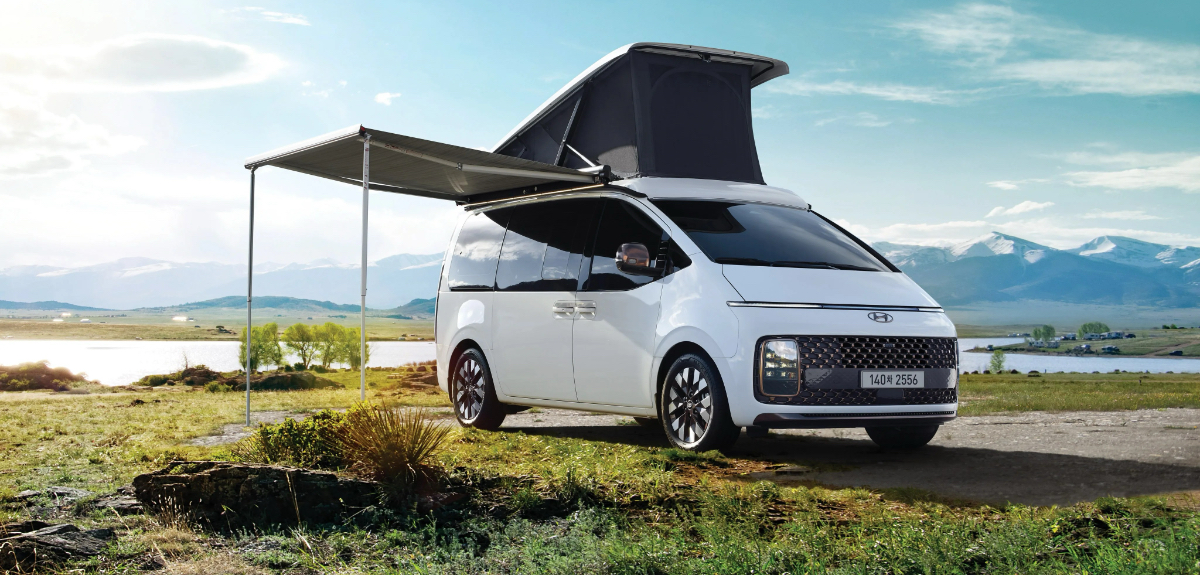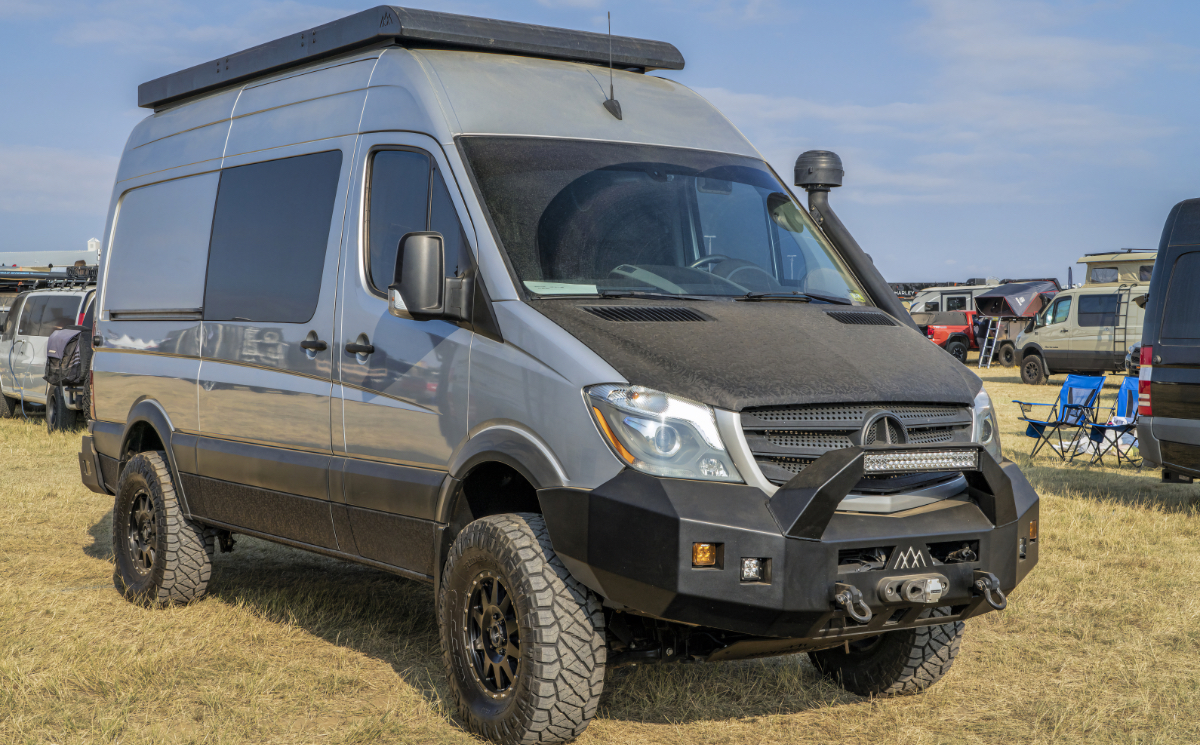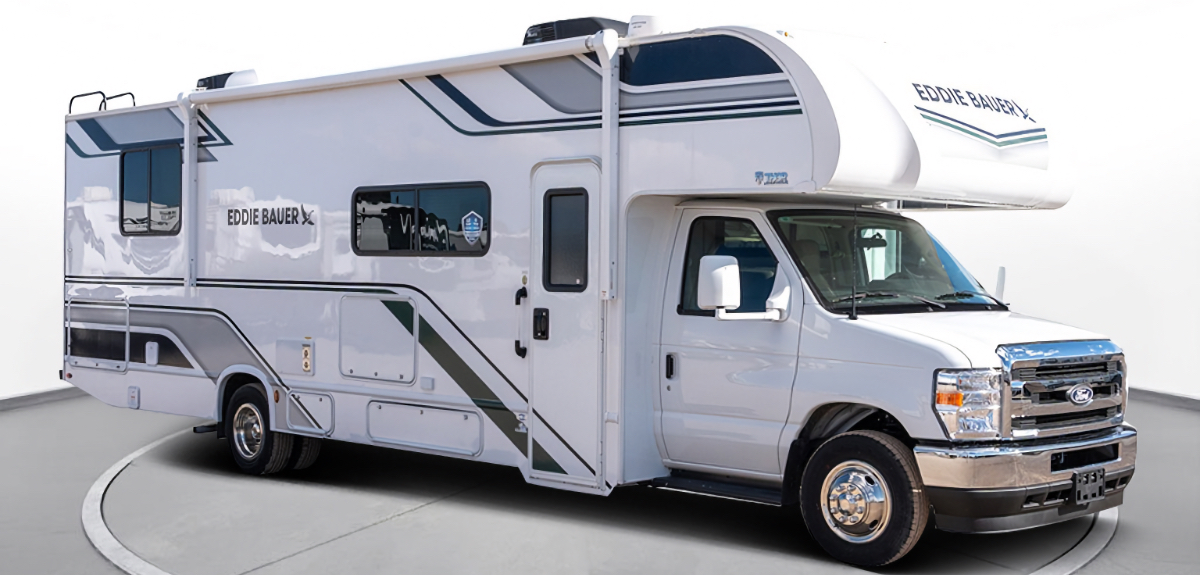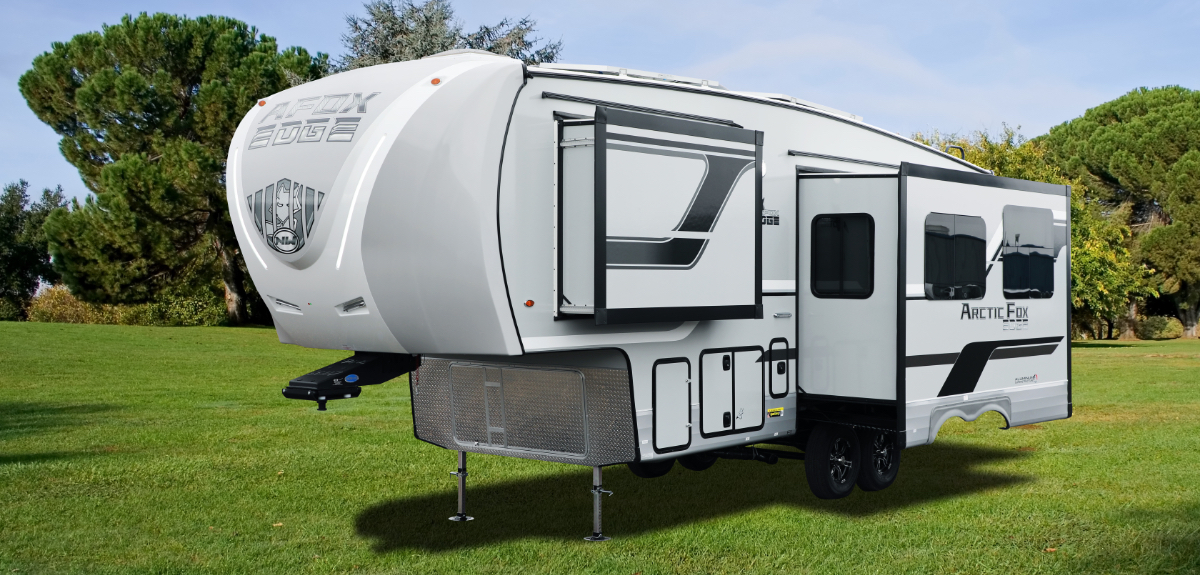Shop Talk: Coach Craft with Pleasure-Way
The company builds luxurious Class B vans north of the Border.
Image Caption: Photo Credit: Amber Bracken
There might be no better slogan for outdoorsy typesthan Saskatchewan’s provincial motto: “Land of living skies.” It’s on T-shirts, it’s on license plates and it’s tied to a place that seems to sprout just as many homegrown businesses as it does bushels of wheat. One of those businesses is Pleasure-Way Industries, a Saskatoon-based producer of premium Class B motorhomes.
Now led by CEO Dean Rumpel, whose kids also work within the business, the company was founded by his father, Merv, who still comes in a few times a week at the age of 92, mostly to drink coffee and talk business. The way Dean tells it, the company’s origin story began with one of Merv’s simple business decisions in 1986.
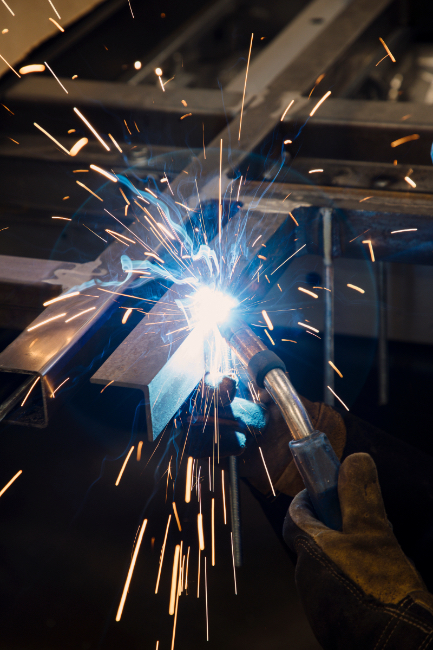
Photo Credit: Amber Bracken
“During that time, he was selling trailers and other RVs,” Dean Rumpel recounts. “Another manufacturer came by trying to establish a dealership to sell a product. And my dad thought, ‘This was a good idea; sure, I’ll sign up.’ But they couldn’t supply for six months. So at that point, my dad thought, ‘Well, hey, I could probably build a van in six months.’”
Turns out, he could. In 1986, Merv built 10 Class B motorhomes. And close to 40 years—and more than 20,000 units later—Pleasure-Way has grown from an original team of 10 to one that now stands around 170.
The years have seen product and manufacturing changes, shifts in consumer dynamics and a growing dealer network that stretches across the U.S. and Canada. Still, when Dean Rumpel reflects, he feels that commitment to people and quality is the factor that has kept Pleasure-Way independent and thriving.
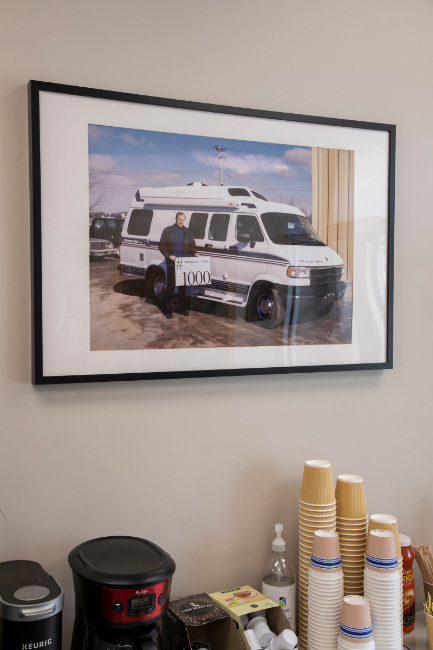
Photo Credit: Amber Bracken
Q: What makes your product distinctive?
A: We are one of the oldest producers of camper vans, also known as Class B motorhomes, in North America. When you’re working in such a small space, there’s limited opportunity for new designs. But we have always transitioned, over the years, from different chassis to offering different floor plans. And our biggest thing that we are known for is the quality of what we build. We will build a unit from start to finish, and instead of it going down an assembly line, it’s run in what we call a stall. So, one person will build all the cabinetry in that unit. And then, instead of it running down a line and people jumping in and doing separate things, everybody comes to the van.
Q: Can you talk about how customer sensibilities have changed over the years and how the company has adapted to the market?
A: One of the biggest changes in probably the last seven, eight years has been the introduction of lithium-based house batteries. When they first came out, some manufacturers were offering them as very expensive options, which they were. We were the first manufacturer to make lithium batteries standard, and that has evolved into more complex, sophisticated systems that are still user friendly. We are also one of the first manufacturers to adopt and make standard multiplex wiring, so that it eliminates all the types of switches and controls and puts them on two panels. So from two panels, you can control all your lights, your air conditioning, hot water, furnace, thermostats. Everything is done.
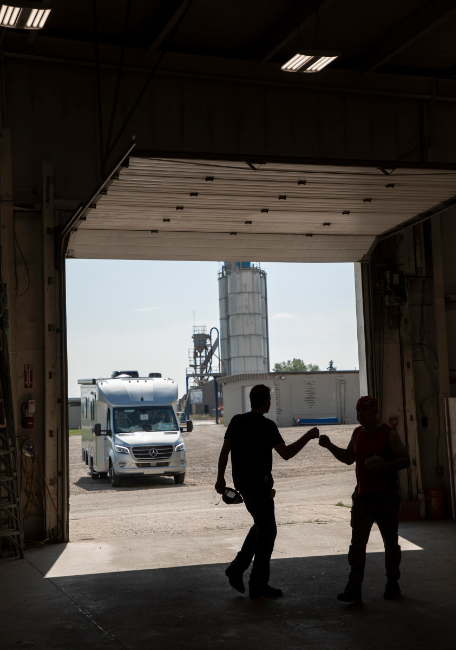
Photo Credit: Amber Bracken
Q: Being based in Saskatchewan, what advantage and or disadvantage do you feel that gives you in the market?
A: We have an advantage because there is no other RV manufacturing competition here. So, we tend to have staff who stay a little bit longer, for sure. The disadvantage is a lot of the components and everything we buy, we have to truck in from Elkhart, Indiana—where much of the RV industry is based—so that’s an added expense.
Q: Every unit is trailered to the customer. Is that a unique selling point?
A: When you purchase it, you’re breaking the motor in, you’re breaking the coach in yourself. It’s not being driven across the country and dropped off. That’s the real basis of it, and it’s just easier for us to ship a couple, two or three, units on a flat deck truck and aim them in a direction and drop them off and have that customer be the first person to drive the coach.
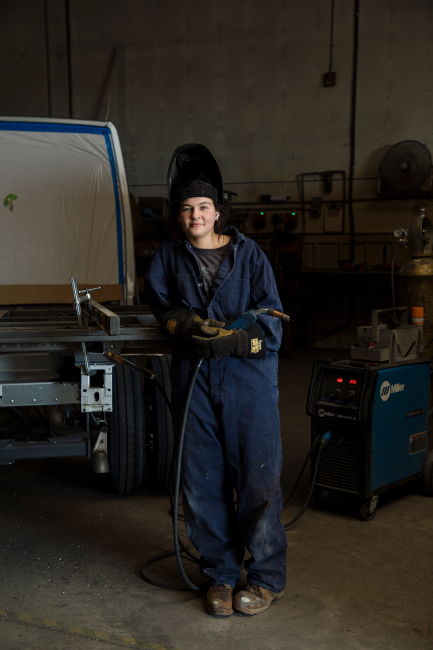
Photo Credit: Amber Bracken
Q: As one of the older companies in the space, how do you think about legacy building as a company and as a family?
A: I hope it continues, for sure. The RV industry was originally built on family RV dealerships and family manufacturing. There’s been a lot of consolidation over the years. There’s only a handful of us left. So, I hope to continue, this goes on into the next generation. I think we have a solid reputation and a niche in the market for what we do, and I think we can hold our own with the big, big players.
| Shop: Pleasure-Way | Location: Saskatoon, Saskatchewan, Canada | Founded: 1986 | Specialty: Class B RVs |
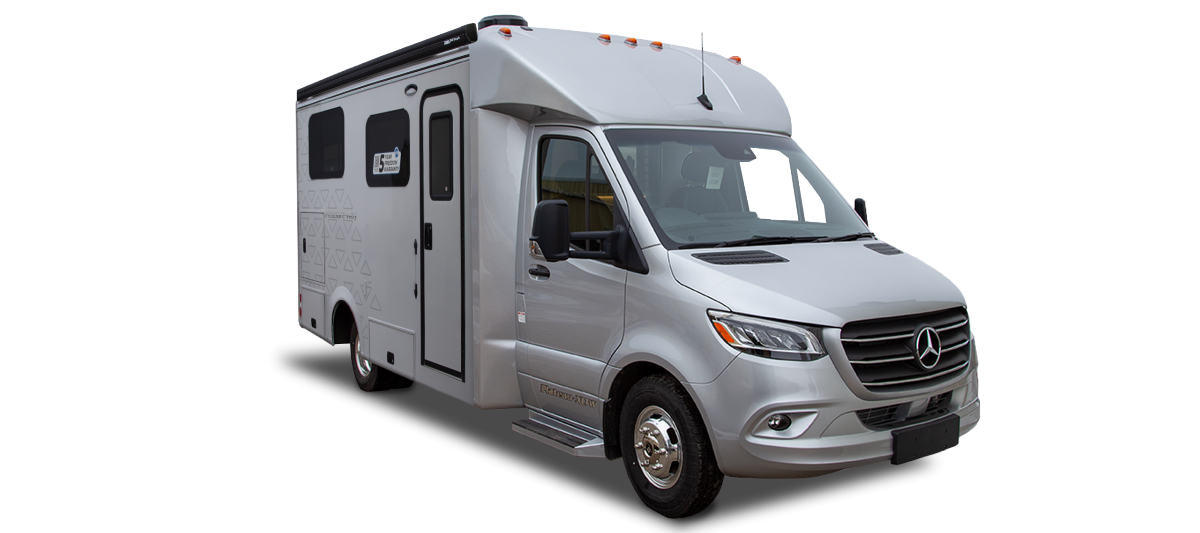
Photo Credit: Pleasure-Way
Pick Your Chassis
Pleasure-Way offers 10 models across three different chassis: the Mercedes Sprinter, the Ford Transit, and the Ram ProMaster. The Plateau XLTS, built atop the Sprinter, offers a roomy interior with a full-size shower, 500 watts of solar power and a flexible living space for $237,672.
The Process
The construction of a Pleasure-Way Class B is a 13-step process that begins with welding and metal fabrication, literally forming the structure of the walls, floors, and ceiling. From there, technicians move onto painting, fiberglass, electrical, and more.
Border Crossings
Prospective buyers should note that due to policies in Canada and the United States, you must purchase a new Pleasure-Way from a dealer in the country where you intend to register it. While there are plenty of dealers in both countries, cross-border sales are typically prohibited.
This article originally appeared in Wildsam magazine. For more Wildsam content, sign up for our newsletter.

